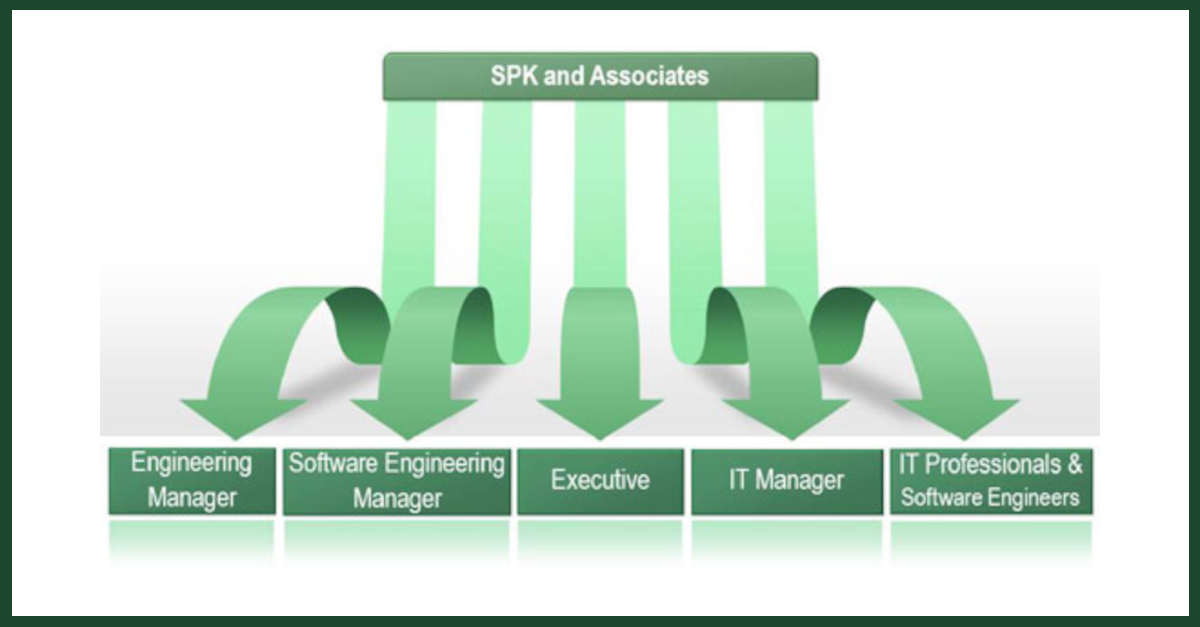Occasionally I’ll get a comment from a potential client who is particularly price sensitive about the rates for our consultants, and the comment usually goes something like: “I can hire a full-time employee who would cost me a lot less than what you are going to charge me for the same thing.”
For a long time, that comment made me really “cranky” because after all, we spend a lot of time and attention at SPK hiring exactly the right people for exactly the right client need. Its hard, it’s time consuming and we’d really like to think our people are incomparable in terms of expertise, delivery quality, and drive to get the job done.
But after hundreds of conversations with clients, I began to realize that there was a basic misunderstanding over what it actually costs a company to have someone “on the books”. As it turns out, the salary you pay is only the front edge of that glacier of cost you see approaching, and most of it is under the water!
So lets take a look at a fairly typical employee cost analysis at a mid-size company. Just stay calm as you look at the numbers, as they say in the car business “your mileage may vary” and some of this may be very applicable to you and some not.
We’ll use a San Francisco Bay Area “Engineer” for our comparison, they could be of any possible “flavor”, perhaps IT, perhaps a Network Engineer, perhaps a Software Developer.
Following the table is some explanation that may help as well.
| Base Salary of Engineer | $100,000 |
| Medical Insurance | $6,840 |
| Dental Insurance | $800 |
| Vision Insurance | $180 |
| 401k (with employer match of 2.1%) | $2,100 |
| Profit Sharing (6% of wage base) | $6,000 |
| Stock Options (assumed to be 10% of wage base for high performer) | $10,000 |
| Social Security Tax (employer portion) | $6,200 |
| Medicare Tax (employer portion) | $1,450 |
| Occupancy (includes rent, insurance, repairs, cap improvements, etc.) | $5,000 |
| Equipment (computers, servers, software, support) | $3,000 |
| Admin, HR, actual use of admin “people” | $4,000 |
| Utilities, cell phones, phone systems | $1,800 |
| Administrative, HR, payroll, and processing cost to enroll a new employee | $2,300 |
| Vacation coverage (averaged at $415 per day for same type of person) | $6,330 |
| Three 1-week training classes, (including co-worker cost to cover) | $9,000 |
| Training class travel expenses | $2,250 |
| Management cost (assumes 200k salary, plus his load and assumes he has 10 direct reports) | $20,000 |
| Recruiter Cost | $20,000 |
| Lost revenue due to built-in 14.4% attrition rate (a revenue per employee assumption of 400k, and 2 months to find and hire a new employee) | $9,600 |
| Lost revenue due to poor new employee productivity (has a 400k per employee revenue assumption and productivity expectations of: 40% month 1, 60% months 2-3 and 85% months 4-5) |
$56,700 |
| Lost Coworker productivity due to new employee (assumes 5 month start up) | $5,700 |
| Final Total | $279,250 |
So lets broadly discuss some of what we see here…
First of all, the kind of Engineer we’re talking about is a first-rate contributor, not run of the mill in any way, so you’re probably going to need the services of a recruiter. Your new engineer probably gets profit sharing or a signing bonus, and since he’s a high quality contributor he probably gets some stock options each year as well. Welcome to the highly competitive world of recruiting!
It costs money to house him and support him with infrastructure, so you see various lines for that including occupancy, equipment, HR, administrative, and utilities.
He needs to stay current (just like our people at SPK), so he needs to get refresher trained or certified every year and his expenses associated with that training need to get accounted for as well.
He needs to be covered while on vacation and that coverage has several costs but for now lets just say a similarly skilled person needs to “mind the store” while the engineer is off on that cruise and is unreachable. The analysis accounts for that.
Those are some easy costs to consider; now we get into a bit more complexity…
His Manager needs to manage him, and his Manager carries a loaded cost too which needs to be allocated to his people, surprise! Now you can spread those costs over a wide range of people, say a management ratio of 20 to 1, but if you do that you don’t get off the hook because a manager with a high people count will probably do a poor job, which drives up attrition, which drives up your engineer loaded cost! We assume a reasonable 10 to 1 people ratio in this example (what we at SPK use): a good manager with great people, and not overloaded.
Next we have lost revenue due to attrition. Though you may not be used to looking at a company metric like revenue per employee, the company CFO probably is. You take the company’s revenue and divide it by the number of people in the company. If you assume that most, if not all, the employees are necessary to the running of the company then you can fairly assume that their absence causes you (in real or sometimes esoteric ways) to lose money, and that brings us to attrition.
When you contract with a firm like SPK and Associates you have the ability to contract for 100% availability. Vacations, training, sickness are all things that need to be seamlessly covered, it’s our problem, not yours.
When you “hire your own” you need to take into account whatever the company’s or your department’s attrition rate is. The national average in private industry is estimated to be about 14.4%. That means that when you actually hire someone you need to build in a 14.4% attrition rate into your new employee upfront!
If you have 10 people you’ll probably lose 1.4% of them this year (that .4 guy is really sweating it). On top of that it will probably take you 2 months to find a new person. All this takes a toll and costs the company money!
But the bad news continues, it also costs the company money when you have to provide backup for the missing employee.
Many industry studies suggest that when you ask co-workers to back-up a vacationing, sick or terminated co-worker their own work suffers as well and I predict your own experience support this idea as well. For our purposes I suggest the overworked co-worker suffers a 10% drop in terms of overall productivity.
Finally, when you hire a new person they regrettably take time to get up to speed. In fact they typically take about 5 months to get to the 100% level. This analysis assumes a “tiered” approach to becoming fully productive. Whenever an employee is not fully productive, revenue is not being generated for the company in some way, and your own employee-loading model needs to take that into account, just like this one.
Okay, I’m sure I’ve got your attention now, and you’re probably in agreement with some of what I’m saying but with other points you’re thinking something like: “well, we don’t do that in our company”, or “we have low attrition so those number don’t work”, or this guy’s really off in left field…
Well your company may be leaner than the one I’m depicting, or other company imperatives may be at play, but what about a whole set of things I haven’t even attached a cost to, what do you think about these, how important are they to you?
- Lost manager time spent on recruiting instead of managing
- Lost customer revenue due to dissatisfaction over people turn-over
- Poor employee morale due to overwork, leading to higher attrition rates
- Lost expertise translating into product release delays or poor customer outcomes
- Problems related to successfully managing cross-functional employees
Ultimately, there are a lot of good and bad reasons for hiring your own employee versus contracting for one. Company culture, necessities of control, and others items may just dictate that a direct employee makes the most sense.
Conversely, if the hiring manager needs to be laser focused on core competencies in an engineering group, and not “diluted” by working on hiring or employee related issues, contracting may make more sense.
My main point today is that the financial case for hiring a direct employee may not be as clear-cut as you think when you apply the criteria I’ve mentioned.
Sometimes its better just to find a first-class consulting company and hand over the entire overhead, and all the headaches, it may make a lot of financial sense!






